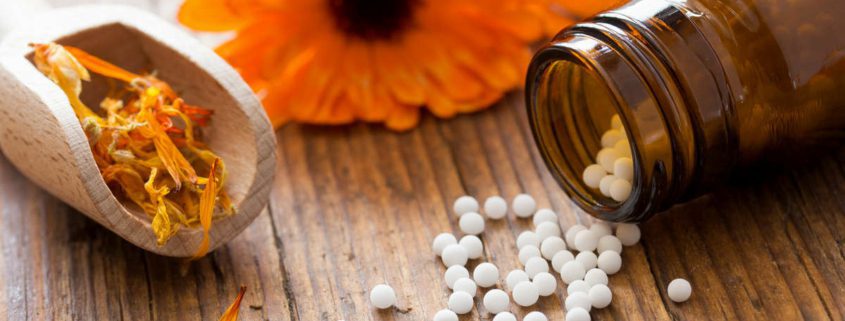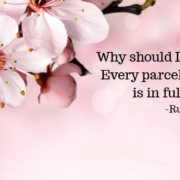Can Homeopathy and Aromatherapy Be Used Together?

Both homeopathy and aromatherapy are integral parts of complementary and alternative medicines (CAM), but they are different systems of medicine used to heal physical and emotional issues. Although they are closely related to each other, each system has its own mechanisms of action that set them apart from the other. Many people think essential oils and their strong scents can counteract the effects of homeopathic remedies. You also might be wondering – can homeopathy and aromatherapy be used together?
In this article, we’ll be exploring whether homeopathy and aromatherapy can be used together or not according to scientific research. But before we get into the effects of using homeopathy and aromatherapy together, it’s important to learn the fundamentals of these healing tools a little bit more. So, let’s get started.
Table of contents
-
What is homeopathy?
-
What is aromatherapy?
-
Can homeopathy and aromatherapy be used together?
-
Things to keep in mind while using homeopathy and aromatherapy together
-
Final words
What is homeopathy?
Homeopathy or otherwise known as homoeopathy is a century-old system of medicine that focuses on achieving a cure or good health in a holistic approach, meaning it takes into consideration the whole person, not merely the disease and its associated symptoms. It was first developed by Dr. Samuel Hahnemann in the 18th century.
The basic principle in homeopathy is that “like cures like”, which is a concept that the ingredients that cause similar symptoms in healthy people can cure the symptoms in diseased people. This is the reason why, homeopathic practitioners use an ingredient, in tiny doses, which usually causes very similar symptoms in healthy people.
For example, a homeopathic remedy made from Allium cepa (onions) is given for the symptoms of a watering nose and streaming eyes, which is usually produced in healthy people by onions when they are chopped.
What is aromatherapy?
As the name suggests, aromatherapy is the use of aroma for therapeutic purposes. It’s a system of medicine in which the sense of smell is activated using aromatic plant compounds, mainly essential oils. Essential oils are plant extracts isolated from various parts of plants such as flowers, resins, roots, leaves, and seeds.
Each essential oil contains its very own mix of pharmacologically active ingredients, which determines its therapeutic benefits and uses. Essential oils can help promote healing in both physical as well as emotional health. For example, Ginger essential oil has been found to have noticeable anti-inflammatory properties and is widely used for the treatment of pain and swelling induced by inflammation, while orange essential oil has significant calming effects and is largely used for enhancing moods and promoting the feeling of relaxation.
The practice of using essential oils for healing purposes has been gained by humans for more than 5000 years. Essential oils have long been used by ancient Egyptians, Greeks, Romans, Indians, and Chinese in their medicines, cosmetics, and perfumes. This use still continues till modern days as modern scientific research has also substantiated the high healing values of essential oils and most of their traditional uses.
Essential oils can be inhaled, massaged, or though rarely, can be consumed. When inhaled, the aroma molecules travel through the olfactory nerves to the parts of the brain that regulate physical, mental, and emotional health. And when massaged or ingested, they can directly interact with the blood, hormones, and when massaged or ingested, they can directly interact with the blood, hormones, and enzymes and favorably impact bodily systems to promote healing from within.
Can homeopathy and aromatherapy be used together?
Many people wonder whether homeopathy and aromatherapy can be used to treat health conditions effectively together at the same time. This question is raised and often purported in the homeopathic community perhaps due to the “prohibited lists” of the early days in which patients using homeopathic remedies were asked to avoid a variety of things including coffee, tea, alcoholic beverages, and even perfumes and others that seemed to negatively affect homeopathic remedies in that time.
In the early days of homeopathy, it was believed that substances that have strong scents can negatively affect the efficacy of homeopathic medicines, which are also known as antidotes. Antidotes are ingredients that can oppose the activity of drugs, poisons, toxins, and other materials. In homeopathy, this term is used to describe what can either completely prevent or partially disrupt the effects of homeopathic remedies.
Camphor is the most widely used antidote in homeopathy. Other substances such as coffee, peppermint, and menthol are also used as antidotes. But these were the approaches of ancient days of homeopathy when the evidence was very limited.
But, over the years, more and more research has been conducted, and in fact, today it is amply well-known exactly which substance or essential oil can truly react negatively to which particular homeopathic remedy. And essential oils have been found to act as antidotes in very few cases. This encouraged thousands of homeopathic practitioners, especially those who are well-versed in both the use of homeopathy as well as essential oils, to use aromatherapy in combination with homeopathic remedies.
And in most cases, homeopathy and aromatherapy synergistically work more efficiently and provide better results compared to when either is used alone. For example, the use of the homeopathic remedy Chamomile has been found more effective in child cutting teeth when it is combined with the topical application of Roman Chamomile essential oil on the cheeks compared to when either is used singly.
Therefore, in modern days, homeopathy and aromatherapy can be used together successfully with a little precaution of antidotes. For example, Psoric class homeopathic remedies are often reported to be antidote by mints, coffee, and other aromatics.
Things to keep in mind while using homeopathy and aromatherapy together
There are certain things we need to keep in mind when considering to use of homeopathy and aromatherapy together at the same time, such as:
- Homeopathic remedies should be opened and administered in a secure place free from aromatics from candles, the kitchen, essential oils, and so on, and then aromatherapy might be applied if it is assumed that together they will work better.
- In certain situations, such as if it is felt that essential oils may affect the way homeopathic remedies will work, maintaining a gap of one or two hours between the consumption of a dose of homeopathy and the application of aromatherapy might help reduce the risks.
- Finally, it’s important to work with a certified healthcare provider who is well-versed in both homeopathy and aromatherapy to determine whether together they are right for your specific condition and what would be the best method of use.
Final words
So if asked – can homeopathy and aromatherapy be used together? In one word, yes, but it depends on whether they interact with each other as antidotes or will work better for healing. Therefore, having a thorough knowledge of the antidotes of homeopathic medicines is important when considering using them together.
Work with a certified aromatherapist or homeopathic practitioner who is well-versed in both to determine the best methods of use prior to using homeopathy and aromatherapy together.
Disclaimer: This article has been written purely for educational and informational purposes and is not intended for medical uses including any form of diagnosis, cure, and treatment.
























Nice post! I found the information really useful. Thanks for sharing